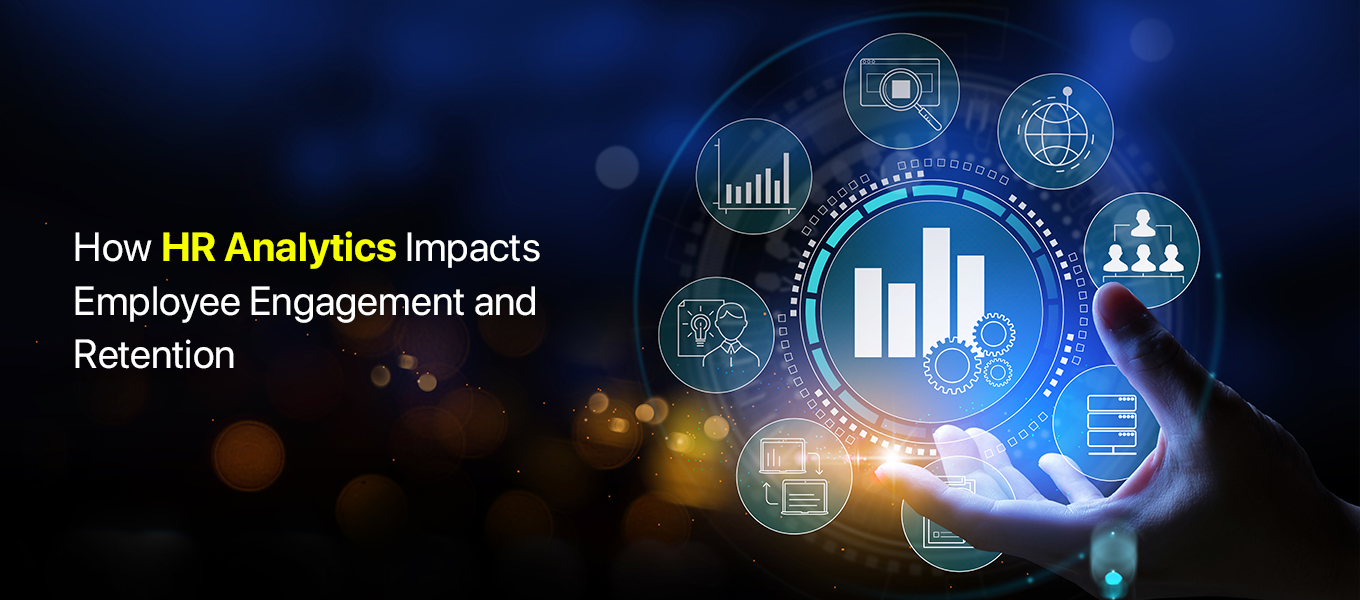
Ways HR Analytics to Improve Employee Engagement and Retention?
Imagine a workplace where employees are highly engaged, motivated, and committed to the organization's success. A place where turnover rates are low and talent is nurtured and retained. This utopian scenario may seem out of reach, but with the power of HR analytics, it becomes a tangible reality. HR analytics, the data-driven approach that harnesses the power of technology and insights to manage human resources, has emerged as a game-changer in improving employee engagement and retention. Get ready to unlock the secrets behind boosting engagement and keeping your top talent within your organization's embrace.
Understanding HR Analytics
HR analytics, also known as people analytics or workforce analytics, is the process of collecting, analyzing, and interpreting data related to HR practices, policies, and employee behavior. It involves using advanced analytical techniques and tools to gain valuable insights into various aspects of the workforce, including recruitment, performance, training, compensation, and employee engagement.
Improving employee engagement with HR analytics
Employee engagement refers to the emotional commitment and dedication that employees have towards their work and the organization. Engaged employees are motivated, enthusiastic, and aligned with your company's goals, resulting in higher levels of productivity and job satisfaction. HR analytics plays a crucial role in enhancing employee engagement by:
Identifying engagement drivers
By analyzing data on employee surveys, feedback, performance, and other relevant metrics, HR analytics helps identify the key drivers of employee engagement. This enables your HR professionals to focus on areas that need improvement and develop targeted strategies to increase engagement levels.
Predictive analytics for retention
HR analytics leverages predictive modeling techniques to identify employees who are at a higher risk of leaving the organization. By analyzing factors such as performance, tenure, job satisfaction, and market trends, your HR team could proactively intervene to retain valuable talent, thus reducing turnover rates.
Personalized employee development
Through HR analytics, you could gain insights into the unique skills, strengths, and development needs of individual employees. This allows your HR team to design personalized training and development programs that align with your employees' aspirations, boosting engagement and career satisfaction.
Real-time feedback and recognition
HR analytics facilitates the implementation of real-time feedback systems, enabling your managers to provide timely recognition and constructive feedback to their team members. This fosters a culture of continuous improvement and strengthens employee engagement.
Enhancing employee retention with HR analytics
Employee retention is a critical concern for organizations as high turnover rates could disrupt productivity, increase recruitment costs, and even lead to a loss of institutional knowledge. HR analytics helps improve employee retention by:
Identifying flight risk factors
HR analytics examines various data points, such as job satisfaction, compensation, performance, and career growth opportunities, to identify factors that contribute to employee attrition. By identifying these flight risk factors, your HR department could implement targeted interventions to mitigate them and enhance retention.
Building effective succession plans
Succession planning is crucial to ensure the smooth transition of talent within an organization. HR analytics enables you to identify high-potential employees, assess their readiness for leadership roles, and develop tailored succession plans. This proactive approach to talent management reduces the likelihood of key employees leaving due to limited growth opportunities.
Pay and benefits optimization
HR analytics helps the HR team understand the relationship between compensation and retention. By analyzing market trends, employee performance, and satisfaction data, they could optimize pay structures and benefits packages to attract and retain top talent.
Evaluating employee experience
Through HR analytics, your HR team could analyze data gathered on various touchpoints in the employee experience, such as onboarding, training, performance management, and work-life balance. This information helps them identify areas where the employee experience can be improved, ultimately contributing to higher retention rates.
Unlock Your Employee Potential with the Best HCM Software
In a modern business environment, where employee engagement and retention are crucial for organizational success, HR analytics emerges as a powerful ally. By harnessing the insights hidden within data, your HR team could unlock the key to building a highly engaged and committed workforce while reducing turnover rates.
So, why wait? Embrace the potential of HR software with analytics capabilities to embark on a journey toward creating a workplace with an engaged and loyal workforce.
Connect with us for a product demo.

